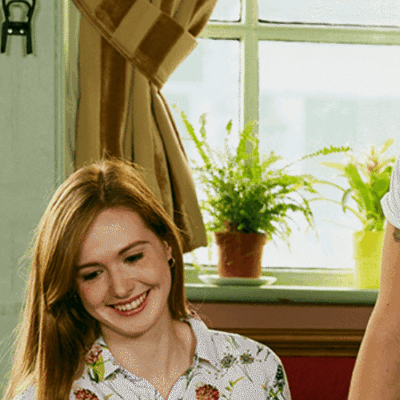
LGBTQ+ facts and figures
An overview of the challenges faced by LGBTQ+ people in various aspects of life, including health, community, employment, education, and sport, as well as from an international perspective.
- Health
- One in eight LGBT people (13%) have experienced some form of unequal treatment from healthcare staff because they’re LGBT.
- Almost one in four LGBT people (23%) have witnessed discriminatory or negative remarks against LGBT people by healthcare staff.
- One in seven LGBT people (14%) have avoided treatment for fear of discrimination because they’re LGBT.
- Seven in ten trans people (70%) report being impacted by transphobia when accessing general health services.
- Nearly half of trans people (45%) said that their GP did not have a good understanding of their needs as a trans person, rising to over half of non-binary people (55%).
- 90% of trans people reported experiencing delays when seeking transition-related healthcare.
- Trans people of colour also experienced transphobia from trans-specific healthcare providers at more than double the rate of white respondents (13% compared to 6%)
Taken from LGBT in Britain: Health (2018) and TransActual Trans Lives Survey (2021).
- Home and communities
- Only half of lesbian, gay and bi people (46 per cent) and trans people (47 per cent) feel able to be open about their sexual orientation or gender identity to everyone in their family.
- Three in ten bi men (30 per cent) and almost one in ten bi women (8 per cent), say they cannot be open about their sexual orientation with any of their friends, compared to two per cent of gay men and one per cent of lesbians.
- More than one in ten LGBT people (11 per cent) have faced domestic abuse from a partner in the last year.
- Almost one in five LGBT people (18 per cent) have experienced homelessness at some point in their lives.
- Half of black, Asian and minority ethnic LGBT people (51 per cent) have experienced discrimination or poor treatment from others in their local LGBT community because of their ethnicity.
- Black, Asian and minority ethnic LGBT people are about twice as likely to attend LGBT-specific venues or events as white LGBT people, 45 per cent compared to 22 per cent.
- Three in ten LGBT people of faith (29 per cent) take part at least once a month in a collective activity connected with their faith.
- A third of lesbian, gay and bi people of faith (32 per cent), and one in four trans people of faith (25 per cent), aren’t open with anyone in their faith community about their identity.
Taken from LGBT in Britain: Home and Communities (2018).
- At work
- More than a third of LGBT staff (35%) have hidden that they are LGBT at work for fear of discrimination.
- Almost two in five bi people (38%) aren’t out to anyone at work about their sexual orientation, compared to seven per cent of gay men and four per cent of lesbians.
- One in four trans people (26%) aren’t open with anyone at work about being trans. This number increases to about two in five non-binary people (37%) who aren’t out at work.
- Almost one in five LGBT staff (18%) have been the target of negative comments or conduct from work colleagues because they’re LGBT.
- Almost one in five LGBT people (18%) who were looking for work said they were discriminated against because of their identity while trying to get a job.
Taken from LGBT in Britain: Work (2018)
- At university
- Two in five LGBT students (42%) have hidden their identity at university for fear of discrimination.
- More than a third of trans students (36%) and seven per cent of lesbian, gay and bi students who aren’t trans faced negative comments or conduct from university staff because they’re LGBT.
- Almost half of LGBT disabled students (47%) have been the target of negative comments or conduct from other students.
- More than a quarter of LGBT students (28%) say they were excluded by other students for being LGBT.
- Students intend to be more open about their sexual orientation and gender identity in higher education, with overall levels of openness increasing from 64% at school to an expected 82% at university or college.When researching university choices, around a third (31%) of LGBT+ students paid specific attention to LGBT+ services. These included mental health support services (47% extremely interested) and university or college reputation in equality and diversity (46% extremely interested). 30% were extremely interested in LGBT+ societies and 21% were extremely interested in support networks for LGBT+ students.
Taken from LGBT in Britain: University (2018) and Next Steps: What is the experience of LGBT+ students in education? (2021)
- Hate crime
- Two-thirds (64%) of LGBTQ+ people had experienced anti-LGBT+ violence or abuse.
- Of these, 9 in 10 (92%) had experienced verbal abuse, 3 in 10 (29%) had experienced physical violence and 2 in 10 (17%) had experienced sexual violence.
- Only 1 in 8 LGBT+ people surveyed had reported the most recent incident that they had experienced to the police. Less than half of those who did report their experienced to the police were satisfied with the response.
- Only 1 in 3 respondents who wanted or needed support were able to access it.
- One third (34%) of Black, Asian and minority ethnic LGBT people have experienced a hate crime or incident in the past twelve months, compared to one in five white LGBT people (20%).
- Two in five trans people (41%) have experienced a hate crime or incident because of their gender identity.
Taken from Galop’s Hate Crime Report 2021 and LGBT in Britain: Hate Crime (2017)
- Education
- 42% of LGBT+ school pupils have been bullied in the past year, double the number of non-LGBT+ pupils (21%).
- 48% of pupils have had little to no positive messaging about being LGBT+ at school in the last year. However, pupils whose schools had positive messaging about being LGBT+ also had reduced suicidal thoughts and feelings – regardless of whether they are LGBT+ or not.
- Half of LGBT pupils hear homophobic slurs 'frequently' or 'often' at school.
- Seven in ten LGBT pupils report that their school says that homophobic and biphobic bullying is wrong, up from half in 2012 and a quarter in 2007. However, just two in five LGBT pupils report that their schools say that transphobic bullying is wrong.
- Just one in five LGBT pupils have been taught about safe sex in relation to same-sex relationships.
- Two in five LGBT pupils (40%) are never taught anything about LGBT issues at school.
- Almost nine in ten secondary school teachers (86%) and almost half of primary school teachers (45%) say that pupils in their schools have experienced homophobic bullying.
- Almost all teachers – 96% in secondary schools and 91% in primary schools – who have addressed lesbian, gay or bisexual issues or different families received no complaints from parents for doing so.
Taken from Just Like Us Growing Up LGBT+ (2021), The School Report (2017) and The Teachers’ Report (2014).
- International
- 70 countries criminalise same-sex relationships.
- The death penalty for same-sex relationships is either ‘allowed’, or evidence of its existence occurs, in 11 of these countries.
- In more than half the world, LGBT people may not be protected from discrimination by workplace law.
- Most governments deny trans people the right to legally change their name and gender from those that were assigned to them at birth.
- A quarter of the world’s population believes that being LGBT should be a crime.
Taken from Stonewall’s International Work and ILGA World (2020)
- Sport
- Seven in 10 football fans who've attended a match have heard or witnessed homophobia on the terraces
- One in ten LGBT people (10 per cent) who attended a live sporting event in the last year experienced discrimination because of their sexual orientation and/or gender identity.
- Three in five fans believe anti-gay abuse from fans dissuades gay professional players from coming out
- Over half of football fans think the Football Association, the Premier League and the Football League are not doing enough to tackle anti-gay abuse
- 17 per cent of lesbian, gay, bi and trans people have experienced and 49 per cent have witnessed homophobia or transphobia in sport.
- 66 per cent of lesbian, gay, bi and trans people felt that there were problems with homophobia and transphobia in sport and that this acted as a barrier to LGBT people taking part.
- One in eight LGBT people (12 per cent) avoid going to the gym or participating in sports groups because of fear of discrimination and harassment
Taken from Out for Sport (2012) and LGBT in Britain - Hate Crime.



